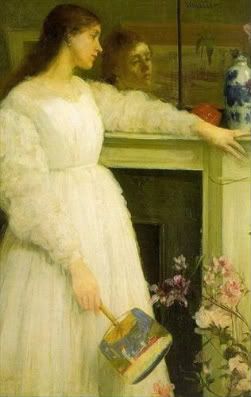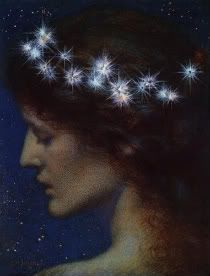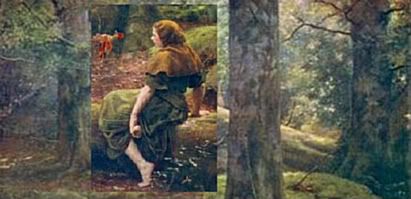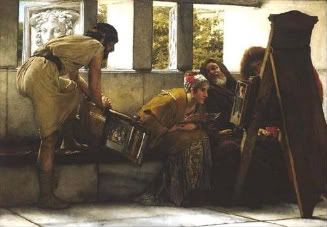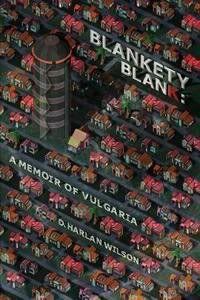The Veil
by Michael A. Kechula

A few hours before Geoffrey Winston was to assassinate a key German agent in Lisbon, he was summoned to his Director’s office.
“I want you to drop everything and deliver this package to Serge Sosa in Casablanca,” the Director said. “Your plane leaves in four hours.”
“What about tonight’s mission? The target’s heading back to Germany tomorrow. Everything’s in place. I may never get another opportunity to eliminate the bastard.”
“The mission’s canceled. I’m afraid the Prime Minister’s Office has decided this is more important. What’s more, he selected you to deliver the package.”
“Why does he want me to play messenger boy for that bloody bandit?”
“Sosa told the PM he’d accept the package only from your hands.”
“What’s in the bloody thing?”
“I wasn’t informed. Whatever it is, it’s quite light. But no doubt, extremely valuable. Look, I understand your frustration. Sometimes I think the Prime Minister has his head up his arse. Here’s a German passport in the name of Adolf Zilker. You’re now a salesman from a Berlin company that manufactures gambling equipment. A false-bottomed suitcase has already been packed with the usual things. It’s in the secretary’s office. Oh by the way, no weapons this trip. Not even a knife. Is that clear?”
“Yes, General.”
Cursing the Prime Minister, Serge Sosa, and the entire British Intelligence Establishment, Winston got the suitcase and caught a cab to the Lisbon Aerodrome.
After a flight in a Ford Tri-Motor Aeroplane, Winston cleared customs at Casablanca and headed for Sosa’s Café Chicago. The name was just a gimmick to attract customers. In the 1930s, anything American was considered exotic in North Africa, especially if it was connected with Chicago.
Serge Sosa, an informant for British Intelligence had never been to America. Nobody was even sure if Sosa was his real last name. He was one of millions of displaced persons who’d lost their documents during World War One. Migrating to French Morocco, in 1920, he’d built a sizable fortune, though he was a Communist. Some reports in his dossier implied his money was supplied by Lenin’s secret police, and that he was one of their high-level operatives. Winston had some dealings with Sosa before, and didn’t trust the man.
Entering Café Chicago, he was struck by the electric atmosphere. A band played American jazz better than he’d ever heard outside England. The air was abuzz with the babble of a dozen languages. A mixture of nationalities, mainly Europeans, filled the tables.
The maitre d’ asked Winston if he wished to dine. Speaking in German-accented English, he declined, announcing he was Adolf Zilker from Berlin and had an appointment with the café’s owner. Winston flashed a German business card emblazoned with a swastika.
The sight of that Nazi symbol excited the maitre d’, a fascist sympathizer. “Certainly, Herr Zilker,” he said crisply. “Monsieur Sosa is expecting you.” He clapped his hands, and a mean-looking Spaniard in a vanilla suit appeared. “Carlos, take Herr Zilker to Sosa’s office. He’s expected.”
Winston noticed a bulge on the right side of Carlos’ suit jacket. He wished he too had the comfort of a holstered pistol. But now he knew where he could get one, in case things got a bit sticky.
After climbing a spiral staircase, Carlos knocked on an intricately carved door. A huge African brandishing a Thompson submachine gun opened the door part way.
“He’s expected,” Carlos said.
The African opened the door wide enough for Winston and Carlos to enter.
Serge Sosa greeted Winston with a vigorous handshake. “Herr Zilker, how are you? How are your lovely wife and children? How was the flight from Berlin?”
While Winston answered his questions, Sosa dismissed Carlos and the African. As soon as they were gone, he said, “Good to see you again, Winston. I heard you’re creating quite a stir among the Germans in Lisbon.”
“I do what I can,” Winston said dryly.
“Don’t be so modest. Your work has put quite a dent in their operations. I hear they just put a price on your head.”
Alarmed at the news, Winston maintained a poker face. He wondered if it were true. He made a mental note to check his sources throughout Europe as soon as he returned to Lisbon. Then it dawned on him that might not make it back. Maybe Sosa would deliver him to the Germans for a fat fee. Winston scanned the room to see if there were any windows from which he could make a hasty escape. Unfortunately there were none.
“I assume you have my package?”
“It’s right here.” Winston reached inside the suitcase and pressed a hidden latch. The door to the secret compartment popped open. He removed the small package and gave it to Sosa.
Sosa’s eyes gleamed manically. “This is my ticket out of this rotten, god-forsaken, African stink hole.” He pressed the package against his chest as if embracing it.
“I should be getting along. It was a tiring flight.”
“I’d prefer that you stay and enjoy some refreshments. At a time like this, I’d like the company of someone to share this tremendous moment. Someone refined and cultured who can appreciate what I’m about to open.”
“I don’t know if I’m as refined and cultured as you imagine.”
“Indeed you are. You’re far more cultured than the brigands in my employ. Oh, I know plenty about you, Winston. You’re tough as nails. Dangerous. Deadly. Nothing stands in your way when you’re on a mission. Nevertheless, you are a refined man. Oxford educated. You love opera and ballet. You paint wonderfully detailed landscapes. You wrote a book of poems that was published under your real name—James S. Foxworthy.”
“Foxworthy? Poet?” Winston forced a laugh. “That’s rich, Sosa. Unfortunately, your information is quite flawed. I couldn’t draw if my life depended on it. And I loathe opera and ballet.”
“I could turn you over to the Germans right now, you know?”
Winston stopped laughing. “I suppose you could.”
“But I won’t. You are exceedingly valuable to me. I have great plans for you. In fact, James S. Foxworthy, AKA Geoffrey Winston, you’re here because I demanded that London send you. I told your Prime Minister that you were the only person I trusted to deliver this package. They damn well owed me. Do you know that because of me, not a single undercover German agent who ever put his foot on African soil from Cairo to Casablanca has lived to talk about it?”
“Where do you get off making such a claim? The King of Morocco’s security forces handle the Germans for us in North Africa. We arm his people and pay him in gold.
“Let’s just say His Highness subcontracted the task to me,” Sosa said. “Secretly, of course. You English think you know everything.”
“I suspect you’ve been paid quite handsomely by the King.”
“Not
nearly enough!”
“I’d have thought the King would pay a sultan’s ransom. He’s no lover of the Germans. He can lose his country if they war on the French and occupy Morocco. Bad enough the French run the country, where he’s just the titular leader. But things will be worse if the Germans grab Morocco. The King and his entire tribe will be annihilated. Your life won’t be worth a sous, either. Hitler hates Communists as much as he hates Jews.”
“No matter. The English owed me for delivering the head of German intelligence operations in Algeria to them. I told London I didn’t want money or gold for my services. I wanted something far more valuable. And here it is. Aren’t you curious about what’s inside this package?”
“Not particularly,” Winston lied.
“You’ll feel differently when I open it.”
Sosa quickly unwrapped the package and removed a silvery-blue, shimmering cloth the size of a towel. His heart quickened as he unfolded it. “Look how beautiful it is,” he said ecstatically.
Putting the cloth to his face, he rubbed it against his cheeks. He sniffed deeply as if it were the perfumed undergarments of an exotic paramour. “I smell POWER!” he roared.
Winston wondered if the man were daft. He thought Sosa was having a psychotic breakdown over a piece of cloth.
“This is worth more to me than all the gold in the Bank of England. This magnificent cloth is the veil of Scheherazade, exotic princess of the desert. Daughter of the Great Sultan of Arabia. Creator of the Tales of Arabian Nights.”
“Scheherazade? She’s nothing more than a character in Arabic fiction. A figment of somebody’s imagination.”
“An old papyrus says otherwise. It tells of a day when Allah strolled through his gardens pondering what to create to reflect his glory. The accursed Serpent appeared and hissed, ‘Can Allah, the Compassionate, make from the rib of man, a woman more beautiful than Eve? A woman so beautiful that Allah himself would not dare gaze into her countenance?’ Allah dismissed the serpent shouting ‘Thou salt not tempt the Almighty One, the Giver and Taker of Life.’ Not long afterward, the Creator of All Things Visible and Invisible put Adam into a deep slumber and breathed on his rib a second time. Thus, he formed a woman more beautiful than Eve.”
“And that woman was Scheherazade?” Winston asked, amused by the Arabic fable.
“None other.”
“So you’re convinced this cloth is her veil?”
“The one and only. The papyrus tells how it was woven by cherubs in the Garden of Unending Delights. It was taken to Scheherazade by Angel Gabriel. He placed the veil over her head during evening prayers to protect her beauty from the corrupt eyes of sinful men. A genie was implanted into each off its thousand and one strands. Hence the veil is possessed by a thousand and one genies. Each has the power to grant three wishes to the veil’s owner.”
“Three wishes for every genie?” Winston chuckled. “What happens when a bloody genie grants all three?”
“It’s released to the Vale of Everlasting Tranquility, and the strand turns to brass. As you can see, none of the strands are brass. Therefore, not a single genie has ever been invoked to grant wishes. Do you understand the significance of this tremendous truth?”
Winston shrugged. He couldn’t comprehend how Sosa could survive World War One, build a fortune, outwit the Germans—all very real events—and believe in fables.
“You believe in nothing,” Sosa said with disgust. Wagging his finger he added, “Very soon you will learn to believe in
all things. This veil, this treasure from the glorious past of wandering desert tribes, still has three thousand and three wishes to grant. And now I own it.” His eyes gleamed as he laughed triumphantly.
“Let me guess,” Winston said. “You’ll use the wishes to rule the world.”
“Indeed! I will own the world and all it contains. I will be the richest and most powerful man in history. My kingdom will be more glorious than the Inca and Aztec empires, more vast than the Romans or Alexander the Great ever dreamed of.”
The way Sosa spoke made Winston think that Hitler, Mussolini, and Japan’s Emperor were more preferable adversaries. They merely hoped to carve up the world into colonies and impose their governments and cultures. Adequate armed forces were available to ensure their wishes would never be realized. But, if Sosa’s claims were even remotely possible, he could become the greatest menace ever. All the combined armies of the Earth couldn’t stop him. Winston cringed at the idea of Serge Sosa becoming ruler of the entire globe.
“Why not become the world’s greatest hero by invoking a genie and asking for world peace?” Winston asked.
“Surely you jest. Peace does not exist, except in the minds of weaklings. These are genies, not gods.”
“Then what good is a genie? Or a thousand?”
“Genies fetch things for the veil’s owner. Things that already exist. So, I must be very clever and plan exactly what I want them to gather. I can, for example, ask for all the diamonds in the world. The papyrus says the genies must comply. In minutes, they will collect every diamond on Earth. From rings, necklaces, bank vaults, South African mines.”
“They sound like bloody thieves to me,” Winston said.
“They are no worse than Robin Hood, a thief your nation elevated to near-sainthood. Surely you, an Englishman, can appreciate what three thousand Robin Hoods could accomplish.”
“So, you intend to steal from the rich and give to the poor?”
“Give to the poor? Ridiculous! Who can build an empire by squandering money on masses of unwashed peasants? My plans for the poor—in fact for everyone—are far more elegant. I’ll command a genie to gather the frontal lobes of every human being on the planet, except for myself and a few assistants. Billions of mindless robots robbed of their ability to think will follow my orders without question. Imagine…all that power from a single wish. And three thousand and two wishes would still remain. Can you comprehend the limitless power that lies at my fingertips?”
If there were any truth to Sosa’s mind-boggling claims, Winston would have to act quickly before he lost his frontal lobes. He trembled at the thought of becoming a human robot in service to a madman.
“Are you sure the bloody thing works?” Winston asked. “Maybe you should make a wish to test the genies. Perhaps they are asleep and must be awakened. Or maybe they’ve lost their powers over the centuries.”
Sosa blanched. The thought of a powerless veil had never occurred to him. “It is said that he who strokes the strands in faith is rewarded with beautiful, celestial music. The very music to which the planets dance as they rotate around the Sun.”
Draping the veil over his arm, Sosa stroked the strands. The room filled with exquisite, ethereal sounds that made Winston think of angelic voices. Lasting only a few seconds, the sounds were the most enthralling they’d ever heard.
“So, it made some nice music. Making a bit of music isn’t the same as invoking a genie and commanding it to fulfill a wish. Why not summon a genie and ask it to supply you with a thousand each of the largest and finest African diamonds, Burmese rubies, Columbian emeralds, and Ceylonese sapphires?”
Sosa reached for a crystal cognac snifter and poured golden liquid from a decanter. Taking a sip, he said, “Your idea about jewels is inspired. I may spare your frontal lobes when I build my empire. A servant who can think creatively might be of value.” Grasping the first strand between his thumb and middle finger, he said, “Genie of the first strand, I invoke thee.”
A gust of wind whipped through the room. Everything made of glass jingled.
“Genie of the first strand, I command thee to bring me in crystal urns, a thousand each of the largest and finest African diamonds, Burmese rubies, Colombian emeralds, and Ceylonese sapphires.”
An unearthly voice said, “Yes, Master.”
A fog formed in one corner of the room. A flash of lightening cracked through the mist. The fog parted revealing four crystal urns filled with magnificent stones. The highly polished gems threw flashes of colored light everywhere.
“How exquisite!” Sosa gasped. “This is truly a vision of Paradise.”
Winston trembled. No man should have such power. Something had to be done quickly to stop Sosa. He thought of the cyanide pill, his constant companion since he’d entered clandestine service.
“Look how wonderfully these diamonds sparkle!” Sosa said with excitement, as he ran his hands through the stones. Moving to the rubies, he dug into them with both hands. “Look how they catch the light! What fire!”
As Sosa moved to the emeralds, Winston quickly removed a steel capsule from his pocket. Opening it, he dumped a tiny cyanide pill into Sosa’s cognac snifter.
“These gems must be worth billions,” Winston said.
“It’s not enough! I want more! I want it all! Now there’s nothing to stop me from getting it all!”
“Then let us drink to your new Empire,” Winston shouted, trying to emulate Sosa’s crazed enthusiasm. “Let’s toast a new golden age. A new world order.”
“Ah, has the unflappable Geoffrey Winston come to his senses? Is he really beginning to see the light and where his future truly lies?”
“Indeed!” Winston said.
“Well then, let us also toast the end of your servility to the Crown of England, and to the glories of your new life as servant to Serge Sosa, Emperor of the Earth.”
“It’s clear that the future of the world is in your capable hands,” Winston said, cursing Sosa under his breath.
Pleased with Winston’s response, Sosa poured him cognac, and added more to his own glass.
The agent of death had completely dissolved. One gulp was all that stood between Sosa the powerful madman and Sosa the powerless corpse. It’d only take thirty seconds to hurl him into the clutches of eternity.
“Today I drink the finest cognac. Tomorrow, I’ll drink the nectar of the gods as one of their equals.”
“Hear, hear!” Winston shouted, raising his glass.
Sosa swallowed his drink and poured another.
“What’s your next wish?” Winston asked, counting the seconds.
Sosa gagged, his eyes wide with shock. “You bast—!” He reached for the veil in a desperate attempt to save himself.
His hands shook violently, as he tried to grasp a strand. The veil slipped from his fingers when he collapsed.
Winston pressed his fingers against Sosa’s neck. No pulse. He put his ear against Sosa’s chest. No heartbeat. “Burn in hell, you bloody bastard!” he yelled, kicking the corpse in the ribs with all his might.
Scooping several handfuls from each urn, Winston threw the jewels into his suitcase. He picked up the veil, grabbed the first string, and imitated the genie-invoking ritual.
“Genie of the first strand, return the jewels in the crystal urns where you found them.”
“Yes, Master.”
When the gems disappeared, he ordered the genie to whisk him and his suitcase back to his Lisbon apartment. In the blink of an eye, he found himself in his living room. Throwing the veil over a chair, he poured a whiskey. While drinking, he pondered the evening’s bizarre events. They seemed unbelievable, impossible, unreal. But that changed when he glanced at the veil and noticed the first strand had changed to brass.
Winston realized that
he was now the owner of the shimmering cloth infested with genies. Realizing he was most powerful man on the planet, a war erupted in his soul: a profound struggle between altruism and self-interest. On one hand he could alter the course of history for the good of mankind. He could order genies to transport Germany’s Hitler to the most impenetrable jungle in the Amazon, Italy’s Mussolini to the middle of Antartica, and Japan’s Emperor to the top of Mount Everest.
On the other hand, why waste valuable wishes for the benefit of mankind, when he could use them to build a fabulous life for himself? What did mankind ever do for him? So what if war came? He’d order the genies to transport him to a place of safety and serenity, a place where he’d be oblivious to the coming cataclysm.
Self-interest got the upper hand. Two days passed without sleep as Winston feverishly wrote endless lists to plan his future. He structured a utopia, a carefully planned Garden of Eden. He’d live on the most beautiful Pacific island on Earth. He’d outfit it with a lifetime of the world’s finest provisions, including French Champagne, American cigarettes, Belgian chocolates, English stout. He’d appropriate the most beautiful mansion in the world, and fill it with the world’s greatest books. He’d staff the mansion with dozens of Europe’s most gracious servants. He’d relocate to his island a hundred of the world’s wittiest, friendliest, and most brilliant English-speaking intellectuals. He’d stock his bedroom with a thousand of the loveliest, most ardent women on Earth.
When he completed his list, Winston decided he’d outdone the Creator of the Cosmos by ensuring no serpents would inhabit the new Eden. By then, he was convinced that he too was a god, the supreme ruler of his own universe.
Physically, mentally, and emotionally drained, he fell asleep. His slumber was disturbed by horrible dreams. He witnessed Sosa burning in Hell, tormented by demons. He found himself struggling mightily against endless legions of German agents. He saw Angel Gabriel standing on top of Mount Ararat, blowing a golden trumpet. The blare unleashed countless genies who descended on Winston’s Eden, destroying it with fire and brimstone. Winston fled in terror. When he turned to look back at the horrible destruction, he was transformed into a pillar of salt.
The nightmare hurled him from bed. Panicked, he ran to a mirror to see if he was covered with salt.
When calmness returned, he realized he’d become as mad as Serge Sosa. Like Sosa, he had been corrupted by the powers that bewitched the veil. He realized the veil was more dangerous to civilization than all of its combined enemies. No wonder Scheherazade never made a wish. She must have known how dangerous the veil’s power truly was.
Nothing with such potential for evil could have possibly been woven by holy angels, he reasoned. It must have emerged from the depths of Gehenna. It must have been conceived by the Serpent, whose minions wove the threads while shrieking blasphemies upon each strand.
Something had to be done about this insidious manifestation of evil. Once again it fell upon Winston to save the world. But this time, cyanide pills were useless. So were all the weapons ever devised. He was dealing with the powers of darkness, an invisible world that could never be destroyed by mankind. But if he couldn’t destroy that intangible world, perhaps he could hinder it from polluting mankind’s affairs.
A plan formed in his mind. He wondered if the entities within the veil could hinder the plan’s execution. Genies could be devilishly clever. He’d have to articulate his wish very carefully. He wondered if the genie, upon hearing the wish, would refuse to comply. Didn’t the papyrus, according to Sosa, indicate they always did? But the papyrus could have been a devious document of half-truths and lies. Or it might have contained some truths merely to advance great untruths.
Grasping the second strand with his thumb and middle finger, he invoked a genie. “Genie of the second strand, bury this veil one hundred miles below the surface of the most inaccessible place in the Sahara Desert.”
“Yes, Master.”
The veil disappeared in a puff of acrid smoke. The pungent odor of sulfur remained in Winston’s apartment for several hours as a stark testimony of the veil’s true origin.
* * *War came to Europe in September, 1939. During the darkest day of that horrendous six-year conflict, Winston sometimes wished he had the veil so he could dispatch Hitler to an impenetrable jungle, Mussolini to the middle of Antartica, and the Emperor of Japan to the top of Mount Everest. But then he’d recall how the veil’s owner could be transformed into a monster worse than jack-booted brown shirts and banzai-charging fanatics. He’d also remember the nightmare in which he’d been turned into a pillar of salt.
* * *After the war, Winston traveled to cities where gemstones were sold for exorbitant prices. The proceeds from the diamonds, rubies, emeralds, and sapphires he’d appropriated that night at Sosa’s enabled him to create a lesser, but exceptionally luxurious version of the Eden he’d once so carefully planned.
* * *Michael A. Kechula is a retired technical writer. His flash and micro-fiction tales have won first prize in six contests and honorable mention in three others. His stories have appeared in ninety-four online and print magazines and anthologies in Australia, Canada, England, and US. He’s authored a book of flash and micro-fiction stories: “A Full Deck of Zombies--61 Speculative Fiction Tales.” eBook available at www.BooksForABuck.com and www.fictionwise.com Paperback available at www.amazon.com
What inspires you to write and keep writing? I've been writing fiction only six years. Prior to that, I made my living as a professional writer of self-study textbooks and task-oriented instructional manuals for industry. By switching to fiction, I've found new outlets for my unquenchable urge to write. Frankly what inspires me to keep on going is the fact that I've been able to get an average of 1.7 stories accepted per week for thirty-seven months straight. During that time, my work has been accepted by ninety-four print and online magazines and anthologies in England, Canada, Australia, and US. With that kind of success and continuous reinforcement, the impetus to write even more is quite powerful. If my fortunes were suddenly reversed, and my work was constantly rejected, I'd write anyway. Perhaps it's a compulsion. But it's the one of the most rewarding compulsions anybody could hope for.








